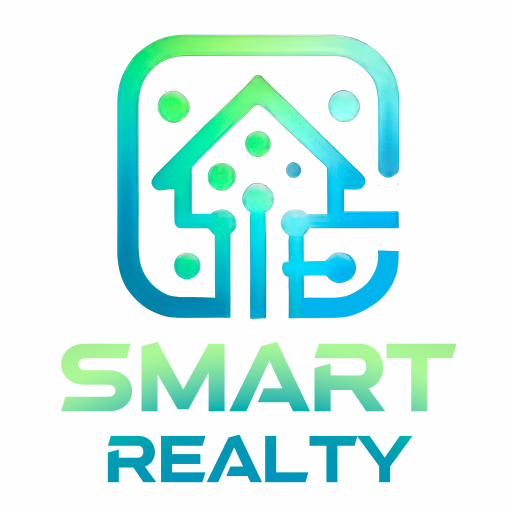Artificial intelligence (AI) has revolutionized the landscape of property management, offering cost-effective and sustainable solutions. With AI-powered systems, property owners can optimize energy management, improve efficiency, and enhance tenant satisfaction. Through predictive maintenance, data-driven decision-making, and automation, AI is transforming the way properties are managed.
Key Takeaways:
- Intelligent Energy Management powered by AI offers cost-effective and sustainable solutions for property management.
- AI enables predictive maintenance, data-driven decision-making, and automation to optimize property efficiency.
- Implementing AI in property management can enhance tenant satisfaction and streamline processes.
- Accurate data collection, privacy and security measures, and employee training are key to successful AI implementation.
- The future of AI in property management holds promise for advanced algorithms, intelligent building systems, and a competitive edge.
The Concept of AI in Property Management
AI integration has revolutionized property management, bringing forth improved efficiency and enhanced tenant experiences. This section will explore the concept of AI in property management, including the integration of technologies like machine learning, natural language processing, and computer vision.
AI encompasses two main types: narrow AI and general AI. Narrow AI excels in specific tasks, such as image recognition or natural language processing, while general AI aims to replicate human intelligence and adapt to various situations.
In property management, AI-powered systems have proven to be invaluable. For example, chatbots powered by AI facilitate customer service interactions, providing prompt responses to queries and enhancing communication. Predictive maintenance algorithms utilize machine learning to anticipate maintenance needs and optimize resource allocation, minimizing downtime and maximizing operational efficiency.
Moreover, smart home technology, integrated with AI, enables automated tasks and personalized experiences for residents. From security systems that recognize residents’ faces to energy management systems that optimize energy consumption, AI empowers property owners with tools for safety, convenience, and sustainability.
By integrating AI technologies like machine learning, predictive maintenance algorithms, and smart home technology, property managers can streamline operations, optimize resource allocation, and elevate the overall tenant experience.
With AI integration, property management becomes smarter, more efficient, and more responsive to evolving market demands.
The Importance of AI in Property Management
AI plays a pivotal role in property management, offering significant advantages in efficiency, data analysis, and task automation. Through the use of AI-powered systems, property managers can optimize their operations, streamline processes, and improve profitability.
Operational Efficiency
AI enables property managers to achieve operational efficiency by automating routine tasks, saving time, and increasing productivity. With AI-powered systems handling manual processes such as maintenance scheduling and record-keeping, property managers can focus on strategic decision-making and delivering exceptional tenant experiences.
Data-Driven Decision-Making
By harnessing the power of AI, property managers can make data-driven decisions that lead to better outcomes. AI algorithms can analyze vast amounts of property-related data, such as market trends, tenant preferences, and pricing dynamics, to provide insights that inform strategic planning and optimization.
Rental Pricing Optimization
AI-powered systems can optimize rental pricing to maximize profitability. By analyzing market data, historical rental performance, and demand patterns, AI algorithms can recommend the most competitive and profitable rental rates. This ensures that property managers achieve their revenue goals while remaining competitive in the market.
Automation for Streamlined Processes
Automation is a key benefit of AI in property management. By automating manual tasks such as rent collection, lease renewals, and maintenance requests, property managers can save time, reduce errors, and deliver a seamless experience to tenants. Automation also contributes to increased operational efficiency and improved tenant satisfaction.
Implementing AI in property management offers numerous benefits, including operational efficiency, data-driven decision-making, rental pricing optimization, and automation. Property managers who leverage AI-powered systems gain a competitive edge in the industry, streamline their operations, and deliver an exceptional experience to tenants.
Challenges and Solutions when Implementing AI in Property Management
Implementing AI in property management can be a complex endeavor, requiring careful consideration of various challenges. These challenges include:
- Data Quality: Ensuring the accuracy and comprehensiveness of data is crucial for AI implementation. Incomplete or inconsistent data can lead to inaccurate predictions and unreliable insights.
- Privacy and Security: Protecting sensitive information is of utmost importance when using AI in property management. Property owners must establish robust privacy and security measures to safeguard tenant data and comply with legal regulations.
- Change Management: Introducing AI systems into an organization requires managing change effectively. Resistance to change and reluctance to embrace new technology can hinder successful implementation.
- Training: Adequate training is essential to ensure that property management teams can effectively utilize AI systems. Without proper training, employees may struggle to adapt to new workflows and optimize the benefits offered by AI.
However, the challenges can be overcome through proactive strategies and solutions. By addressing each challenge, property management businesses can successfully implement AI systems to enhance their operations.
To address the challenges mentioned above, consider the following solutions:
- Data Collection and Integration Strategies: Implement robust data collection methods to ensure data accuracy and completeness. Utilize tools and technologies that facilitate seamless integration of data from various sources.
- Robust Security Measures: Establish stringent security protocols to protect sensitive data from unauthorized access. Implement encryption, access controls, and regular audits to mitigate security risks.
- Change Management Plans: Develop a comprehensive change management plan that includes clear communication, employee involvement, and training programs. Engage employees in the decision-making process and provide ongoing support throughout the implementation phase.
- Employee Training: Provide comprehensive training programs to equip property management teams with the necessary skills and knowledge to effectively utilize AI systems. Offer continuous learning opportunities to keep employees updated with evolving technology.
By adopting these solutions, property management businesses can overcome the challenges associated with AI implementation and effectively leverage the benefits offered by AI technologies.
Case Study: Implementing AI for Data Quality Improvement
“By implementing AI-based data integration and cleansing tools, our organization was able to significantly improve the quality of our property data. It eliminated manual errors and inconsistencies, allowing us to make better-informed decisions and optimize our operations.” – John Smith, Property Manager at XYZ Properties


| Challenge | Solution |
|---|---|
| Data Quality | Implement AI-based data integration and cleansing tools to ensure accurate and comprehensive data. |
| Privacy and Security | Establish robust security protocols, including encryption and access controls, to protect sensitive data. |
| Change Management | Develop a comprehensive change management plan, including clear communication and employee involvement. |
| Training | Provide comprehensive training programs to equip employees with the necessary skills to utilize AI systems effectively. |
The Future of AI in Property Management
The future of property management is rapidly advancing with the integration of advanced AI algorithms. These algorithms have the potential to revolutionize various aspects of property management, providing valuable insights and streamlining processes.
One area where advanced AI algorithms will have a significant impact is in pricing. By analyzing market data, historical trends, and consumer behavior, these algorithms can accurately determine optimal rental prices. This not only maximizes revenue for property owners but also ensures competitive pricing that attracts tenants.
Another important application of AI in property management is occupancy forecasting. By analyzing historical occupancy rates, seasonality, and market trends, AI algorithms can predict future occupancy levels. This allows property managers to proactively adjust marketing strategies, optimize rental income, and minimize vacancies.
Maintenance scheduling is another area where AI algorithms prove invaluable. By analyzing data on maintenance history, equipment conditions, and performance indicators, these algorithms can predict when maintenance tasks should be performed, preventing costly breakdowns and ensuring optimal performance.
Intelligent Building Systems for Energy Efficiency
Intelligent building systems, powered by AI, offer exceptional energy efficiency benefits. By leveraging sensors, data analytics, and automation, these systems optimize energy consumption in real-time. They monitor occupancy levels, adjust lighting and temperature settings based on usage patterns, and reduce energy waste.
With intelligent building systems, property owners can significantly reduce their carbon footprint, lower utility costs, and create sustainable, eco-friendly properties. Additionally, energy-efficient buildings are more attractive to tenants, increasing occupancy rates and tenant satisfaction.
Automation for Streamlined Property Management
Automation is another key aspect of the future of property management. AI-powered automation systems can handle routine tasks such as rent collection, maintenance requests, and lease renewals, freeing up property managers’ time to focus on more strategic initiatives.
By automating repetitive processes, property managers can increase operational efficiency, reduce human error, and provide a seamless experience for tenants. Automation also enables property managers to gain real-time insights, track key performance indicators, and make data-driven decisions.
Table: Advantages of AI in Property Management
| Advantages | Description |
|---|---|
| Optimized Pricing | AI algorithms determine optimal rental prices based on market data and consumer behavior, maximizing revenue and competitiveness. |
| Accurate Occupancy Forecasting | AI analyzes historical occupancy rates and market trends to predict future occupancy levels, enabling proactive marketing strategies. |
| Predictive Maintenance | AI algorithms predict when maintenance tasks should be performed, preventing breakdowns and ensuring optimal performance. |
| Energy Efficiency | Intelligent building systems powered by AI optimize energy consumption, lower utility costs, and reduce environmental impact. |
| Streamlined Processes | Automation systems automate routine tasks, such as rent collection and maintenance requests, increasing operational efficiency. |
Property management companies that embrace AI technology will gain a competitive edge in the industry. By leveraging advanced AI algorithms, intelligent building systems, and automation, these companies can enhance tenant satisfaction, improve operational efficiency, and ensure long-term success in an evolving real estate market.


Work with a technology-driven property management company for long-term success
In order to fully harness the benefits of AI in property management, property owners are strongly encouraged to collaborate with a technology-driven property management company. One such company that stands out in the field is Gordon Property Management, headquartered in San Francisco. With their expertise and experience, they possess a deep understanding of AI property management and can effectively implement cutting-edge techniques and systems.
Gordon Property Management prioritizes efficient decision-making, streamlining management processes, and ensuring tenant satisfaction. By incorporating AI into their operations, they strive to maximize efficiency and optimize resource allocation, resulting in cost savings and improved operational performance. Through the use of advanced AI algorithms, their team can accurately assess market conditions, rental pricing, and occupancy forecasting, enabling property owners to make informed decisions.
When working with a technology-driven property management company like Gordon Property Management, property owners can expect greater operational efficiency and reduced costs. AI-powered systems enable automation of routine tasks, minimizing manual intervention and freeing up time for property managers to focus on strategic decision-making and tenant satisfaction.
Expertise in AI property management
Gordon Property Management boasts a team of AI experts who have a deep understanding of the latest AI technologies and their applications in property management. They stay ahead of the curve by continually researching and implementing new techniques, ensuring that their clients receive the most efficient and effective property management solutions.
Through their expertise in AI property management, Gordon Property Management offers a range of services designed to enhance operational efficiency and tenant satisfaction. Their services include AI-assisted tenant screening, predictive maintenance algorithms, and automated communication systems. These technologies not only optimize property management processes but also contribute to a positive tenant experience, leading to increased satisfaction and retention.
The advantages of a technology-driven approach
Collaborating with a technology-driven property management company like Gordon Property Management offers several key advantages. Firstly, property owners experience improved operational efficiency. AI-powered systems automate time-consuming tasks and provide data-driven insights, allowing property managers to make informed decisions and allocate resources effectively.
Additionally, a technology-driven approach ensures tenant satisfaction. With AI-enabled communication systems, property owners and tenants can easily and effectively interact, resolving any issues promptly and providing a seamless tenant experience. By delivering exceptional customer service and resolving concerns efficiently, tenant satisfaction is maximized, leading to increased tenant retention and positive word-of-mouth referrals.
“Working with a technology-driven property management company takes the burden off property owners and enables them to focus on their core business. With AI-powered solutions, property managers can enhance efficiency, automate routine tasks, and ensure tenant satisfaction.”
Lastly, collaborating with a technology-driven property management company provides a competitive edge in the industry. The implementation of AI strategies allows property owners to stay ahead of the curve, taking advantage of the latest advancements in technology to optimize resource allocation, attract quality tenants, and maximize profitability.
In conclusion, by partnering with a technology-driven property management company like Gordon Property Management, property owners can unlock the full potential of AI in property management. With their expertise and commitment to efficiency and tenant satisfaction, they are well-positioned to drive long-term success. Through the integration of AI-powered systems, property owners can enhance operational efficiency, automate processes, and ensure tenant satisfaction, ultimately leading to improved financial performance and a competitive edge in the industry.
Conclusion
AI has revolutionized the field of property management, offering numerous benefits and advancements that improve operational efficiency and tenant satisfaction. With AI-powered systems, property managers can optimize energy management, automate routine tasks, and make data-driven decisions.
One of the key advantages of AI in property management is its ability to intelligently manage energy resources. Through intelligent energy management, AI-powered systems can analyze data patterns and adjust energy usage to optimize efficiency and reduce costs. This not only benefits the environment but also allows property owners to save on utility bills and increase profitability.
Furthermore, the use of AI in property management streamlines operations by automating routine tasks and processes. From tenant communication to maintenance scheduling, AI-powered systems can handle these tasks efficiently, freeing up time for property managers to focus on more value-added activities. This leads to increased productivity and improved tenant satisfaction.
In conclusion, embracing AI in property management provides a significant competitive edge in the industry. With its ability to optimize energy management, automate tasks, and facilitate data-driven decision-making, AI-powered systems enhance operational efficiency and improve overall property performance. By harnessing the benefits of AI, property managers can ensure the long-term success of their operations and deliver exceptional experiences to tenants.
FAQ
What is AI in property management?
AI in property management refers to the integration of artificial intelligence technologies, such as machine learning and natural language processing, to optimize energy management, automate tasks, and make data-driven decisions in property management operations.
How does AI benefit property management?
AI offers several advantages in property management, including improved efficiency, data analysis, and task automation. It enables predictive maintenance to minimize downtime, data-driven decision-making to optimize rental pricing, and automation to streamline management processes.
What are the challenges in implementing AI in property management?
Implementing AI in property management may face challenges such as obtaining accurate and comprehensive data, ensuring privacy and security of sensitive information, and managing change within the organization. Solutions include data collection strategies, robust security measures, and change management plans with employee training and support.
What is the future of AI in property management?
The future of AI in property management is promising. Advancements in AI algorithms will revolutionize pricing, occupancy forecasting, and maintenance scheduling. Intelligent building systems will optimize energy efficiency, while automation will streamline processes. Property management companies that adopt AI will gain a competitive edge and enhance tenant satisfaction.
Should property owners work with a technology-driven property management company to leverage AI benefits?
Yes, working with a technology-driven property management company, such as Gordon Property Management based in San Francisco, can help property owners leverage the benefits of AI. These companies have expertise in understanding and implementing new techniques and systems for effective decision-making, efficient management, and tenant satisfaction.
How has AI transformed property management?
AI has transformed property management by offering increased efficiency, data-driven decision-making, and enhanced tenant satisfaction. By adopting AI-powered systems, property managers can optimize energy management, automate routine tasks, and make informed decisions. Embracing AI provides a competitive edge in the industry and ensures the success of property management operations.

